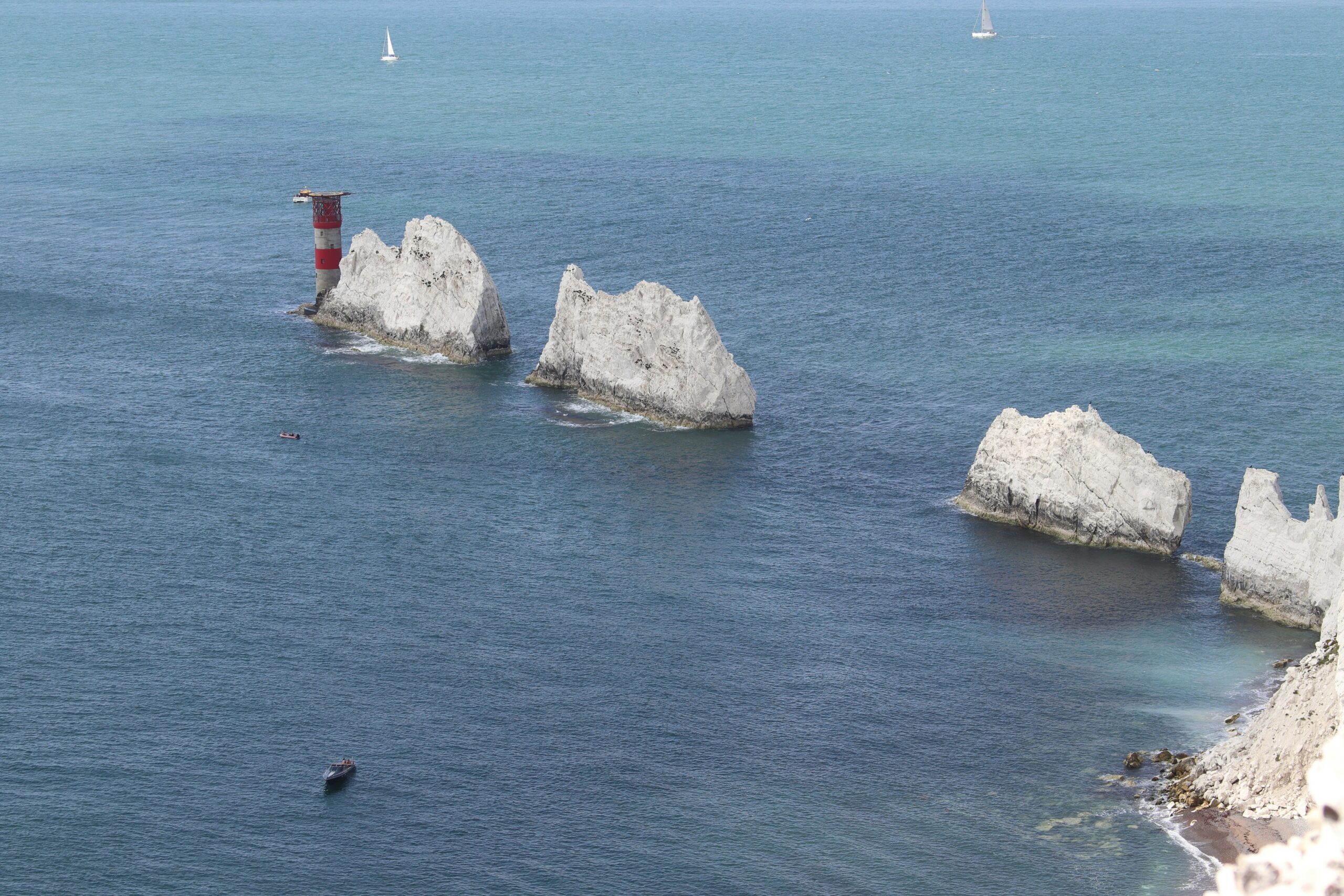Isle of Wight: A Comprehensive Travel Guide
Introduction to the Isle of Wight
The Isle of Wight, a quaint island nestled off the southern coast of England, is a treasure trove of historical significance and natural beauty. Located just a short journey from the mainland, this picturesque isle is easily accessible by a variety of means. Ferries and hovercraft services make regular trips, ensuring that visitors can effortlessly reach this enchanting destination.
Renowned for its mild climate, the Isle of Wight benefits from more sunshine than most parts of the UK, making it a year-round haven for tourists. The island’s appeal lies not just in its pleasant weather but also in its unique charm and diverse attractions. From pristine beaches and dramatic cliffs to verdant countryside and lush woodlands, the Isle of Wight offers a stunning natural landscape that captivates all who visit.
Delve into the island’s rich history, which dates back to the Roman era. Its historical significance is evident in the many well-preserved landmarks and sites, such as Carisbrooke Castle and Osborne House, once the summer retreat of Queen Victoria. The blend of ancient relics and royal heritage lends the island a cultural depth that augments its allure as a tourism hotspot.
Moreover, the Isle of Wight’s coastline is truly spectacular. Stretching for miles, it encompasses everything from sandy bays perfect for family outings to rugged cliffs ideal for hiking and nature walks. Each coastal area has its own distinct character, inviting exploration and offering panoramic views of the English Channel.
In addition to its natural and historical wonders, the Isle of Wight hosts a variety of festivals and events throughout the year, attracting visitors with its vibrant cultural scene. Whether you’re a history buff, a nature enthusiast, or simply seeking a relaxing getaway, the Isle of Wight provides an array of experiences that make it a must-visit destination.
Top Attractions and Activities
The Isle of Wight offers a plethora of attractions and activities that cater to diverse interests, making it a perfect destination for all kinds of travelers. One of the most iconic landmarks on the island is The Needles, a stunning rock formation that emerges spectacularly from the sea. Visitors can take a chairlift ride to get a bird’s-eye view or visit the nearby Needles Old Battery and New Battery fortifications.
History enthusiasts should not miss Osborne House, the former summer residence of Queen Victoria. This opulent estate provides a fascinating glimpse into royal life, complete with beautifully manicured gardens and the private beach used by the royal family. Equally captivating is Carisbrooke Castle, a medieval fortress that has stood the test of time and offers panoramic views of the island.
Beach lovers will find solace in the scenic shores of Shanklin and Ventnor. Shanklin Beach is known for its golden sands and charming esplanade, perfect for a relaxed day by the sea. Ventnor Beach, nestled in a sheltered bay, provides an idyllic setting with its unique microclimate and lush, subtropical gardens.
For adventure seekers, the Isle of Wight presents numerous hiking and cycling trails. The Tennyson Trail is a favorite among hikers, running from Carisbrooke to the Needles, with breathtaking coastal vistas along the way. Cyclists can explore the Red Squirrel Trail, a tranquil route that meanders through scenic landscapes and picturesque villages.
Water sports enthusiasts can indulge in activities such as sailing, kayaking, and paddleboarding. With its prime location, the Isle of Wight hosts various regattas and sailing events, including the prestigious Cowes Week.
Beyond the popular attractions, the Isle of Wight also boasts lesser-known gems. The Isle of Wight Steam Railway offers a nostalgic journey through the island’s tranquil countryside aboard a vintage steam train. Those looking to immerse themselves in local culture will enjoy the island’s vibrant festivals, such as the Isle of Wight Festival and the Garlic Festival, which celebrate music, food, and local talents.
Whether exploring historic landmarks, lounging on beautiful beaches, or engaging in outdoor adventures, the Isle of Wight promises an enriching and memorable experience for every visitor.
Where to Stay and Eat
When exploring the Isle of Wight, your choice of accommodation can greatly influence your overall experience. The island offers a diverse range of lodging options to suit every preference and budget. For those seeking luxury, several high-end hotels provide a supreme level of comfort. Properties like The Royal Hotel in Ventnor and The George Hotel in Yarmouth offer exquisite rooms with stunning seaside views, luxurious amenities, and top-notch service.
Travelers looking for a more personalized touch can opt for boutique bed-and-breakfasts. These establishments, often run by island residents, offer unique decor and a homey atmosphere. Notable mentions include The Leconfield in Ventnor and the charming Haven Hall in Shanklin, both known for their exceptional hospitality and delightful breakfasts.
Budget-conscious visitors will find a plethora of guesthouses and budget hotels dotted across the Isle of Wight. In Newport, the island’s bustling capital, establishments like the Newport Quay Hotel offer affordable rates without compromising on comfort. Camping enthusiasts can explore the numerous campsites available, such as Adgestone Camping Site and Nodes Point, that provide a fantastic way to immerse oneself in nature.
When it comes to dining, the Isle of Wight is a haven for food lovers. The culinary scene is as varied as the accommodation options, with everything from quaint seaside cafes to fine dining establishments. Seaside towns like Cowes and Sandown are rife with charming cafes and traditional fish and chip shops offering the freshest catches of the day. Local favorites, such as The Smoking Lobster in Ventnor, provide a delicious array of seafood dishes, emphasizing the island’s maritime heritage.
Fine dining enthusiasts will appreciate restaurants that offer gourmet experiences, such as Thompson’s in Newport. These establishments showcase local produce and seasonal specialties, ensuring each meal celebrates the island’s rich agricultural bounty. Don’t miss the opportunity to sample Isle of Wight’s renowned cheeses, creamy ice creams, and the island’s signature garlic bread, which are must-tries for any visit.
Whether you opt for the luxury of a high-end hotel, the comfort of a boutique bed-and-breakfast, or the charm of a budget guesthouse, and no matter your culinary preference, the Isle of Wight promises a memorable stay and a delicious journey for every traveler.
Travel Tips and Practical Information
Planning a trip to the Isle of Wight necessitates gathering essential travel tips and practical information to ensure a smooth and enjoyable experience. One of the first considerations is timing your visit. The Isle of Wight sees its peak tourist season during the summer months of June, July, and August. During this period, you’ll find a wealth of festivals, events, and optimal weather for outdoor activities. However, if you prefer a quieter visit, the shoulder seasons of spring (April to May) and autumn (September to October) offer a pleasant climate and fewer crowds.
Navigating the Isle of Wight is straightforward, thanks to its well-connected roadways and public transportation options. Ferries run frequently from mainland England, departing from ports such as Portsmouth, Southampton, and Lymington. Once on the island, you have several transportation options, including buses, taxis, and rental cars. The Southern Vectis bus service is reliable and covers most of the island, making it easy to explore without a car.
Understanding local customs enhances the travel experience. The Isle of Wight shares many traditions with mainland England, and English is the primary language spoken. The local currency is the British Pound (GBP), and ATMs are readily available across the island. Credit and debit cards are widely accepted, although carrying some cash for smaller businesses can be helpful.
Safety and health considerations are top priorities for travelers. The Isle of Wight is generally a safe destination, with low crime rates. Nevertheless, it is advisable to take standard precautions, such as keeping valuables secure and being aware of your surroundings. Health facilities are accessible, with several pharmacies and a hospital located in Newport, the island’s largest town. Travel insurance is recommended to cover any unforeseen medical expenses.
Planning ahead, especially during peak seasons, can significantly enhance your visit. Booking accommodations and transportation in advance ensures availability and can often yield better rates. For additional resources, tourist information centers located in major towns like Newport and Cowes provide maps, brochures, and personalized recommendations. Online travel guides and official tourism websites also offer valuable insights and up-to-date information. By following these tips and staying informed, you can fully enjoy your journey to the Isle of Wight.



